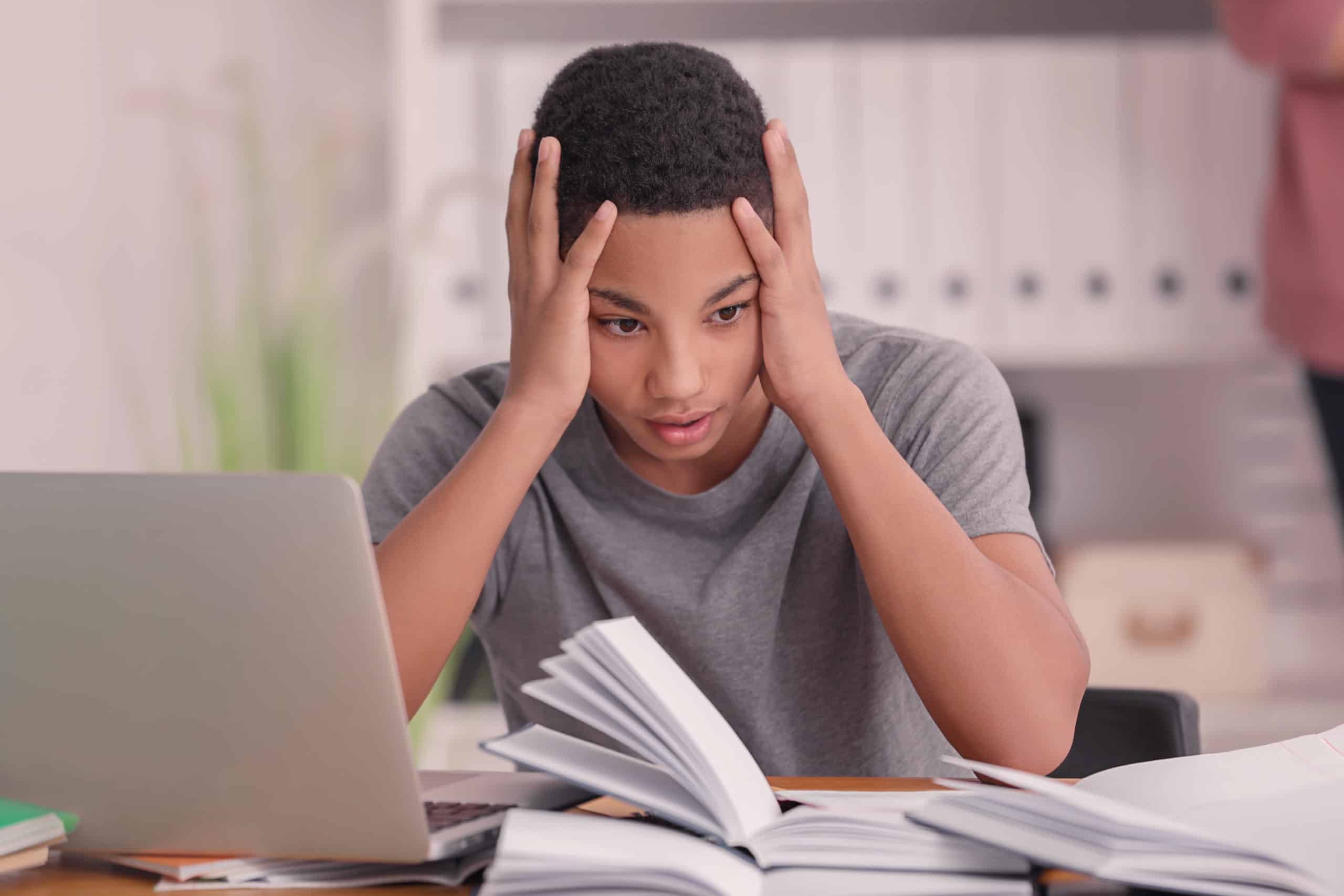“My life is half over because I can’t go to school.” These jarring words spilled out of my fourteen-year-old adopted son’s mouth one morning in May. He’d been home from school for eight weeks because of closures caused by Covid-19.
The abrupt end to his normal routine turned his world upside down. The sudden closing of school and the disappearance of teachers and classmates triggered past traumas. He isolated himself in his bedroom and avoided interacting with us. Fear, anxiety, and stress brought on by Covid-19 invaded our home and threatened our family.
Covid-19: Isolated But Not Alone
Our family is not alone. In recent months, on my Orphans No More Podcast, I’ve interviewed many foster and adoptive parents and professionals who share similar experiences. New York foster mom Deana Zoeller stated that since the school closed, her children have reverted to behaviors she thought were long gone. Tona Ottinger, a Tennessee adoptive mom of eight, shared that some of her kids are doing better with a slower-paced routine, while others are operating in a hyper-vigilant state caused by lack of predictability.
How Can Parents Help Their Children During Covid-19?
Trauma expert, Ruby Johnston, said, “Wounded people can’t help wounded people.” She stressed the importance of self-care, especially for foster and adoptive parents.
I also spoke with author and trauma professional, Jayne Schooler, who warned, “Overwhelmed and exhausted parents can spill toxic stress onto their children.
Both experts urged self-care and rest for parents.
Wear Your Oxygen Mask
Flight attendants instruct parents traveling with children to put on your oxygen mask first. While it sounds counter-intuitive, it’s true. An unconscious parent cannot care for their child in an emergency. Self-care is like an oxygen mask, and without it, we will be unable to help our children through times of crisis.
By week three of New York’s shutdown, I needed an oxygen mask. Trying to balance working from home and homeschooling my two teenage sons unraveled my mental, emotional, and physical health. I’d previously spent sixteen years homeschooling and successfully graduated our six older kids.
Because of their special needs and learning disabilities, homeschooling did not work for our youngest boys. We put them in public school three years ago, and they thrived in their special education classes. Now, with school closed, I was forced to meet their academic, emotional, and social needs. If we wanted to survive this new stress-filled reality, I needed to start with self-care.
Self-Care
My first step—stop wasting time scrolling through stress-inducing Facebook posts and spend that newly gained thirty minutes in stress-reducing exercise. By June, I moved my morning coffee and prayer time out to my porch. Hearing birds chirping, seeing squirrels scampering, and feeling sunshine on my face was life-giving. I also planted a garden for the first time in many years. Ending the evening surrounded by nature, watering my plants, and picking the fruit of my labor nourished my soul.
While self-care may look different for each of us, here are some suggestions offered by the experts I spoke with:

- Take up an activity you used to enjoy (tennis, gardening, painting, etc.)
- Exercise daily
- Connect with people (enjoy virtual coffee with friends)
- Spend time enjoying nature
- Read
- Be creative (write, draw, sew, etc.)
Helping Our Children Navigate
With our self-care oxygen masks in place, we can help our children navigate the new normal brought on by Covid-19. Both experts and parents whom I’ve spoken with echoed similar messages—return to successful parenting strategies, establish routines, prepare for change, and engage in fun family activities.
Go Back to the Beginning
Return to the early, proven strategies you practiced when your children first came home. When we adopted our kids, my husband and I applied Trust Based Relational Intervention (TBRI) techniques. We parented purposefully to disarm fear and build trust through abundant playful interactions, providing a sensory-rich environment, and by establishing routines.
While we hadn’t abandoned these parenting techniques all-together, in recent years, we’d loosened up on them. Since the shutdown triggered past trauma, we’ve returned to providing a high-nurture and high-structure environment for our boys.
Prepare For Change
One of my children has difficulty managing sudden changes in routine. When the world around him seems unpredictable or unstable—he becomes anxious. We’ve learned to prepare him for new situations. This has been a vital strategy during Covid-19 when nothing seems predictable or stable. Even going to the dentist is a whole new experience: wait in the parking lot, text your arrival, wait for a text to be invited in, wear a mask, and the dentist will wear a face shield and mask.
When parents are aware of changes, we can prepare our children and help them adjust to a new routine. Sadly, none of us knows exactly the new school year will bring. Whether classes will be in-person, remote, or a combination, our children will need to navigate countless changes.
For example, if in-person schooling is permitted, our district plans to eliminate serving meals in the cafeteria. Instead, they will deliver breakfast and lunch to students in their classrooms. We’ve already begun talking with our boys about this change in their normal school routine.
Preparing our children in advance and talking them through what to expect can help them feel safe and be successful.
Having Fun Together
Early in the Covid-19 shutdown, I interviewed foster and adoptive parents and TBRI practitioners, Ryan and Kayla North. They recommended families be intentional about having fun, playing, and exercising together. Physical activity and laughter reduce stress—something both parents and children need.
As with self-care, parenting strategies vary, but both parents and experts, I spoke with offer the following tips:

- Build family playtime into each day (board games, arts and crafts, dance parties, etc.)
- Cook or bake together
- Enjoy regular outdoor family activities (hike, bike, swim, camp in the backyard, etc.)
- Establish and follow a routine (bedtime, mealtimes, schoolwork, etc.)
- Create a weekly calendar and have your child/children help set the schedule
- Prepare children for changes
- Unplug often
- Focus on faith (family prayer, thankfulness journals, worship together, etc.)
Reach Out For Help
Even when implementing the above strategies, sometimes parents and children need additional supports. After my son shared feeling like his life was half over, I reached out to the knowledgeable adoption counselor he’d seen when we first adopted him.
Parents should not allow the isolation caused by Covid-19 to prevent them from seeking out help. Fellow adoptive and foster families, support groups, counselors, and of course—the Lord, can help us build strong families capable of withstanding any storm.
“God is our refuge and strength, an ever-present help in trouble.”
-Psalm 46:1 (NIV)




















